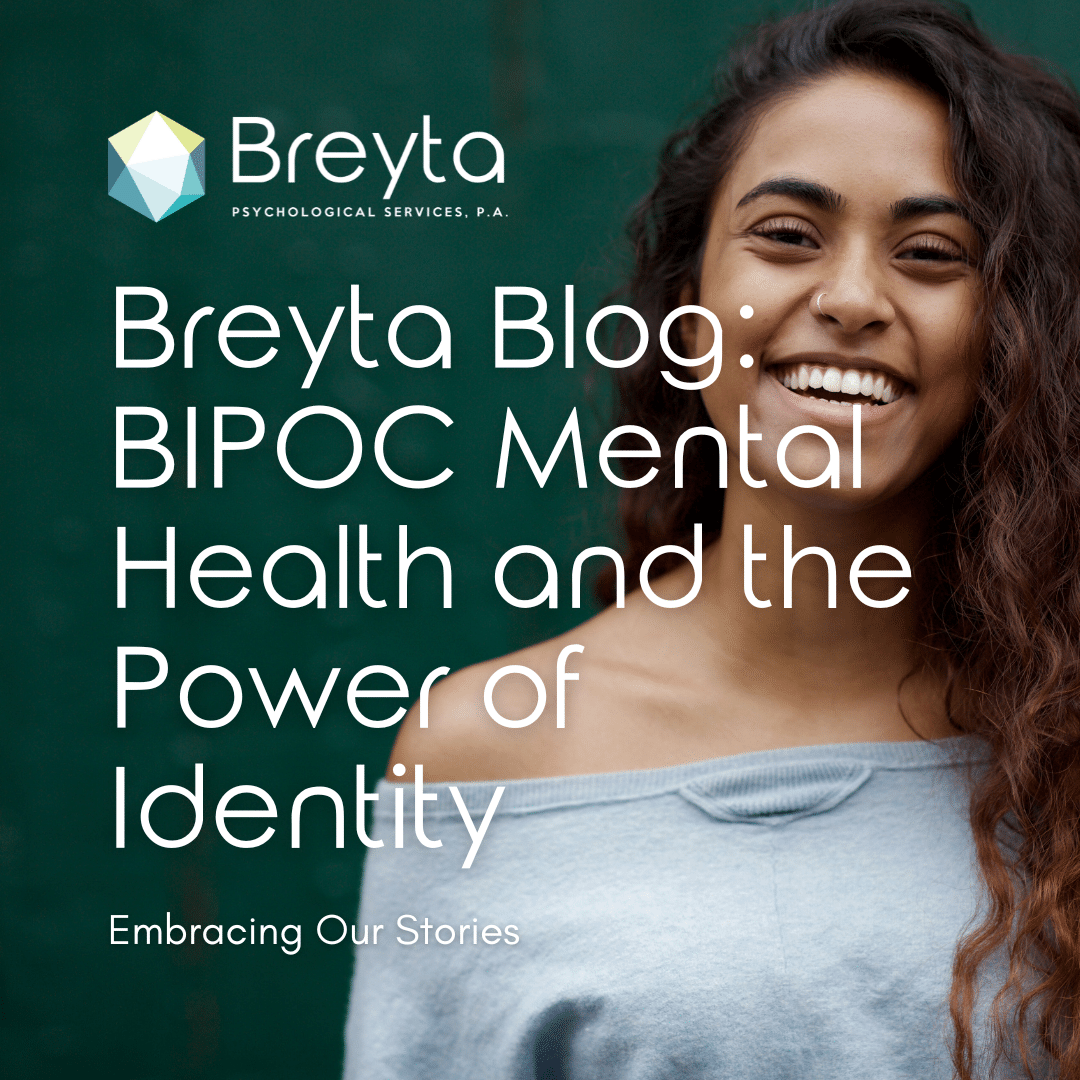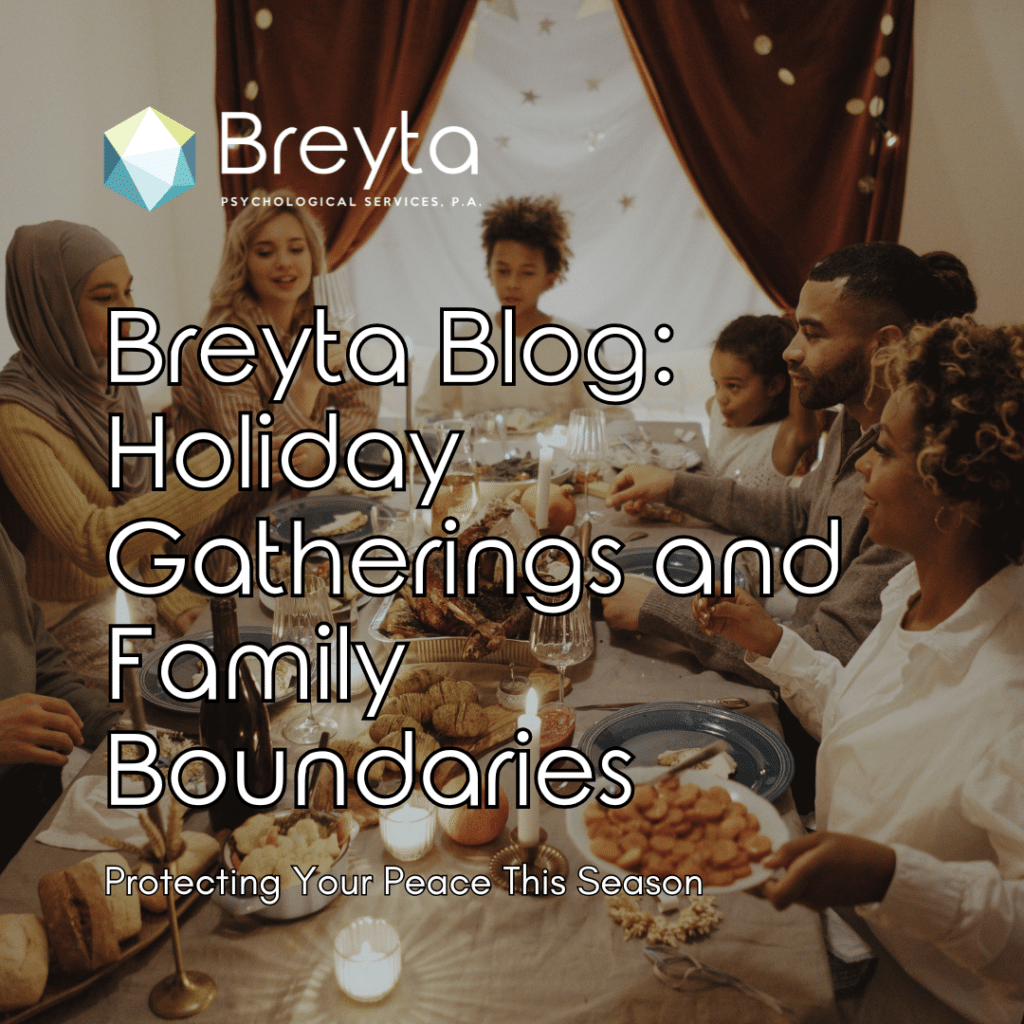by Anusha N. Zechella, Ph.D.
In recognition of BIPOC Mental Health Awareness Month, we are honored to share a deeply personal and insightful blog post by Dr. Anusha Zechella, our esteemed Clinical Director at Breyta Psychological Services. Dr. Zechella’s unique perspective as a 1.5 Indian immigrant and her extensive experience as a clinical psychologist provide a powerful understanding of the mental health challenges faced by BIPOC individuals. Her reflections offer valuable insights into the complexities of identity, belonging, and the journey toward mental wellbeing.
Growing Up as a 1.5 Indian Immigrant
Growing up as a 1.5 Indian immigrant (I was born in India and came to the United States as a young child), I was acutely aware of my cultural and racial identity. I was an Indian, but I spoke with an American accent, ate Indian food for dinner, and talked to my parents in English. I would travel to India infrequently and often felt more like an outsider when I was there than I ever felt in the United States. Yet I was perceived as different here, as someone who sounded and dressed like an American but had an unmistakably Indian name and face. These experiences shaped me into the adult I am today, as someone who proudly identifies as an Indian American but still sometimes gets lost in the cracks of her own identity.
A Clinical Perspective on Identity Challenges
As a clinical psychologist, I have a much different perspective now on the challenges I faced growing up. Feelings of isolation at times, wanting to fit in with both Indians and Americans, and not having the language to explain these feelings all contributed to me being interested in the experience of otherness in a more profound way. Sitting with clients who experience challenges related to any or all parts of their identity has felt especially impactful throughout my career. I acutely feel this in the room with other BIPOC individuals, who have had to walk alongside the challenges of so often being othered in their own lives.
Unique Mental Health Challenges for BIPOC Individuals
Mental health challenges certainly are not unique to BIPOC folks; however, it is important to recognize and highlight the unique circumstances and lived experiences that these clients in particular show up with. We know that BIPOC individuals experience mental health concerns at the same rate as their White counterparts, yet they are less likely to seek professional treatment. Barriers to seeking support may include:
- Cultural beliefs and values around what it means to be struggling with one’s mental health
- Shame or stigma around struggling with a mental health issue
- Lack of support from their community in seeking mental health support
- Difficulty finding a therapist who is culturally responsive
- Negative experiences navigating the health care system in addition to the mental health care system
Overcoming Barriers and Finding Support
While these barriers may seem insurmountable, there are an increasing amount of resources available for BIPOC individuals who are seeking support. Remember that you are not alone and recognizing you need support is an important and brave first step in your mental health journey. Here are some helpful resources to get you started:
- Breyta Psychological Services: A trauma-focused private practice that values culturally responsive care. Breyta Psychological Services
- Multicultural Counselors: Multicultural Counselors
- Inclusive Therapists: Inclusive Therapists
- Psychology Today: Psychology Today
By sharing her personal and professional experiences, Dr. Zechella sheds light on the importance of culturally responsive mental health care and the journey towards finding support and understanding. We hope her reflections resonate with you and provide guidance on your own mental health journey.
About Dr. Zechella
Dr. Anusha Zechella is a highly respected clinical psychologist and the Clinical Director at Breyta Psychological Services. With a rich background in interpersonal, cognitive-behavioral, and emotionally-focused therapies, she brings a unique, culturally responsive approach to her practice. Dr. Zechella specializes in working with individuals, and couples, particularly within BIPOC and LGBTQ communities. Her extensive experience includes roles in college counseling, trauma recovery, and gender-based violence support. Learn more about Dr. Zechella here.
Dr. Zechella holds a PSYPACT credential, allowing her to provide telehealth services to clients in most states. Check to see if your state has enacted PSYPACT. To schedule an appointment with Dr. Zechella, please contact us at (919) 245-7791 or [email protected].





